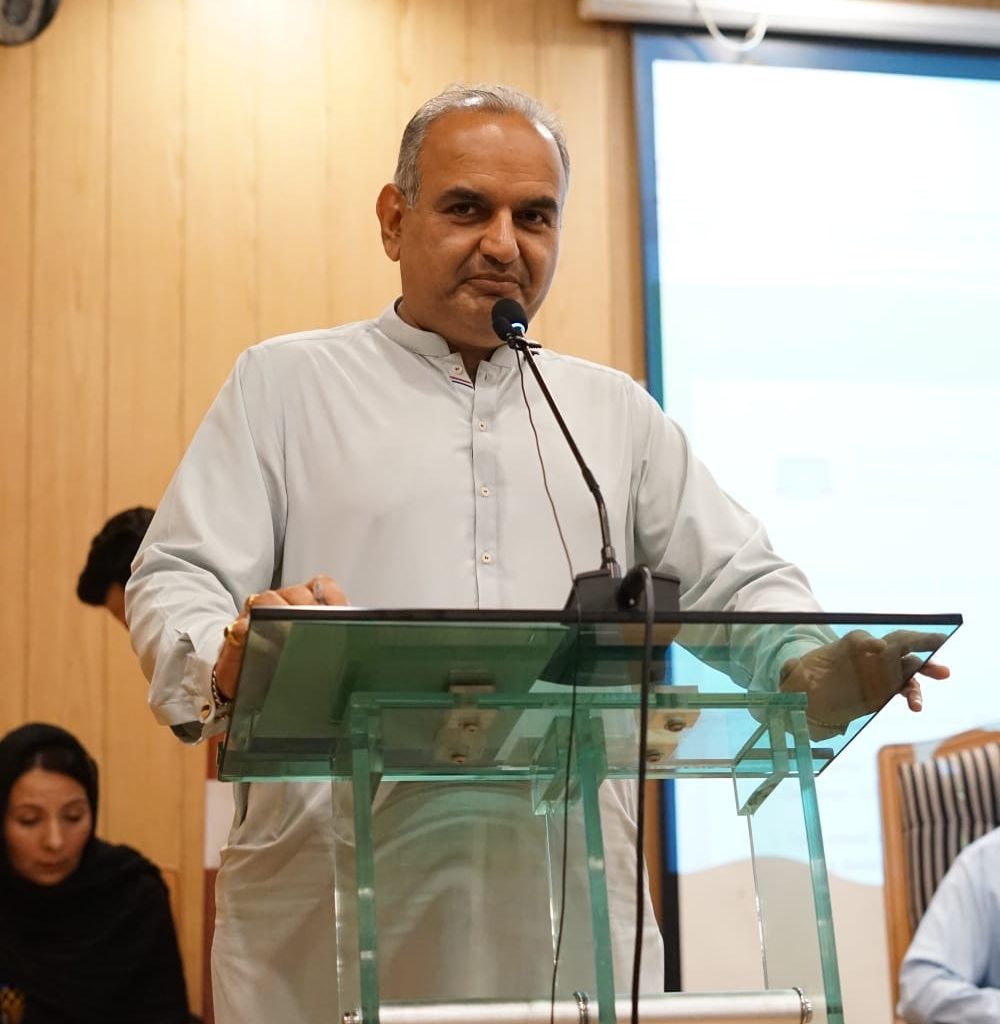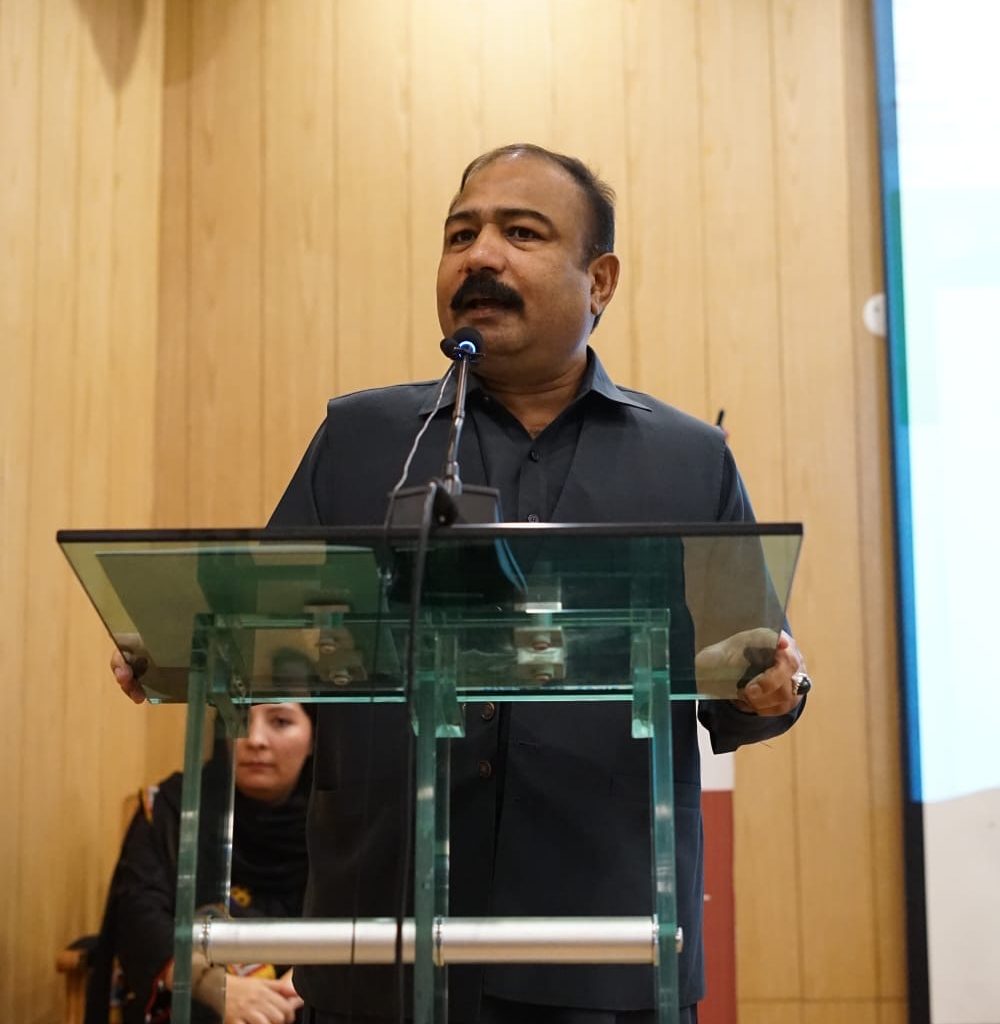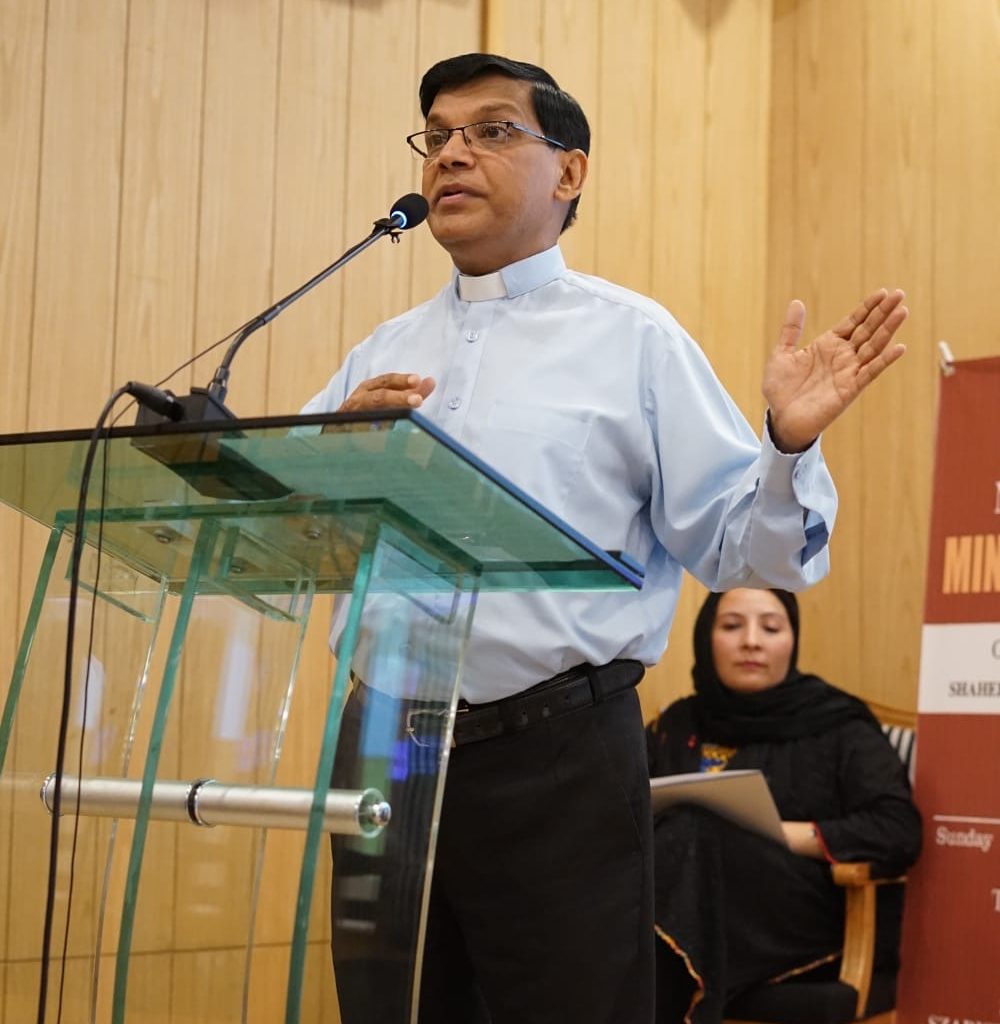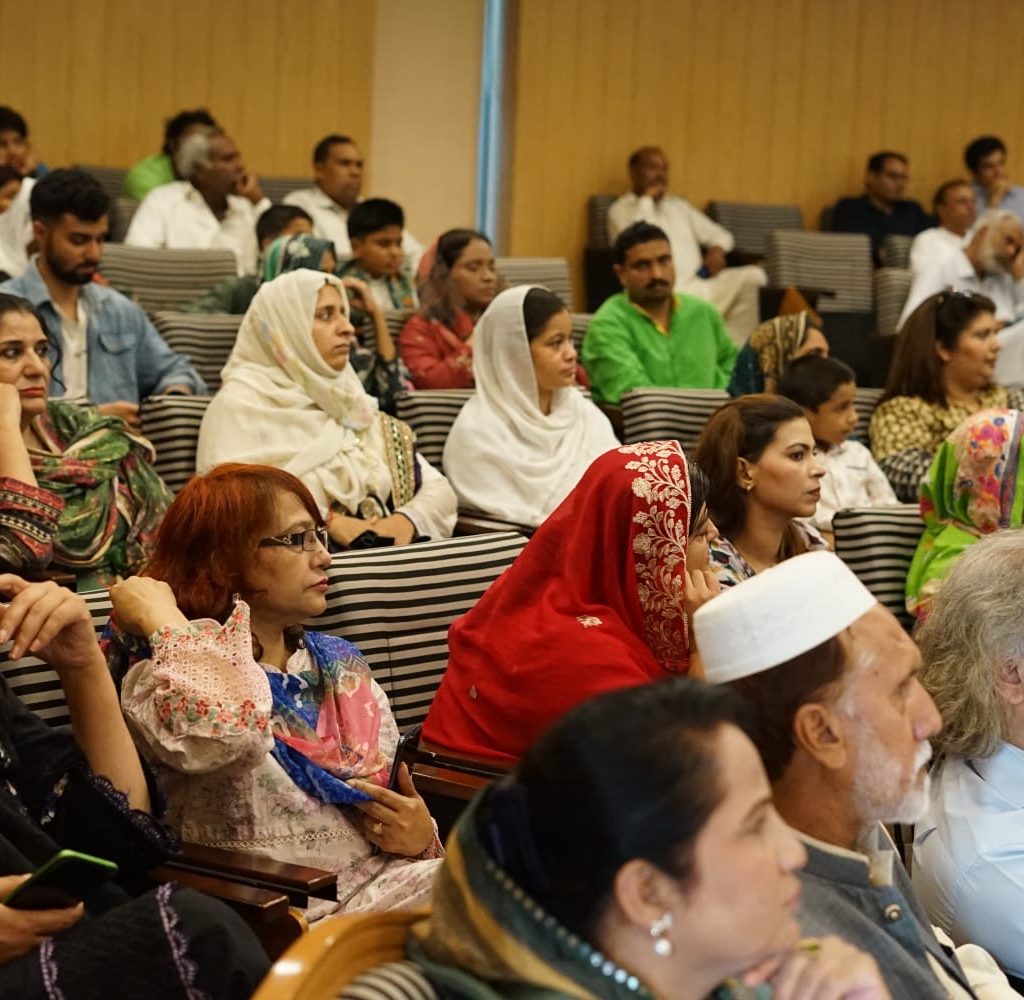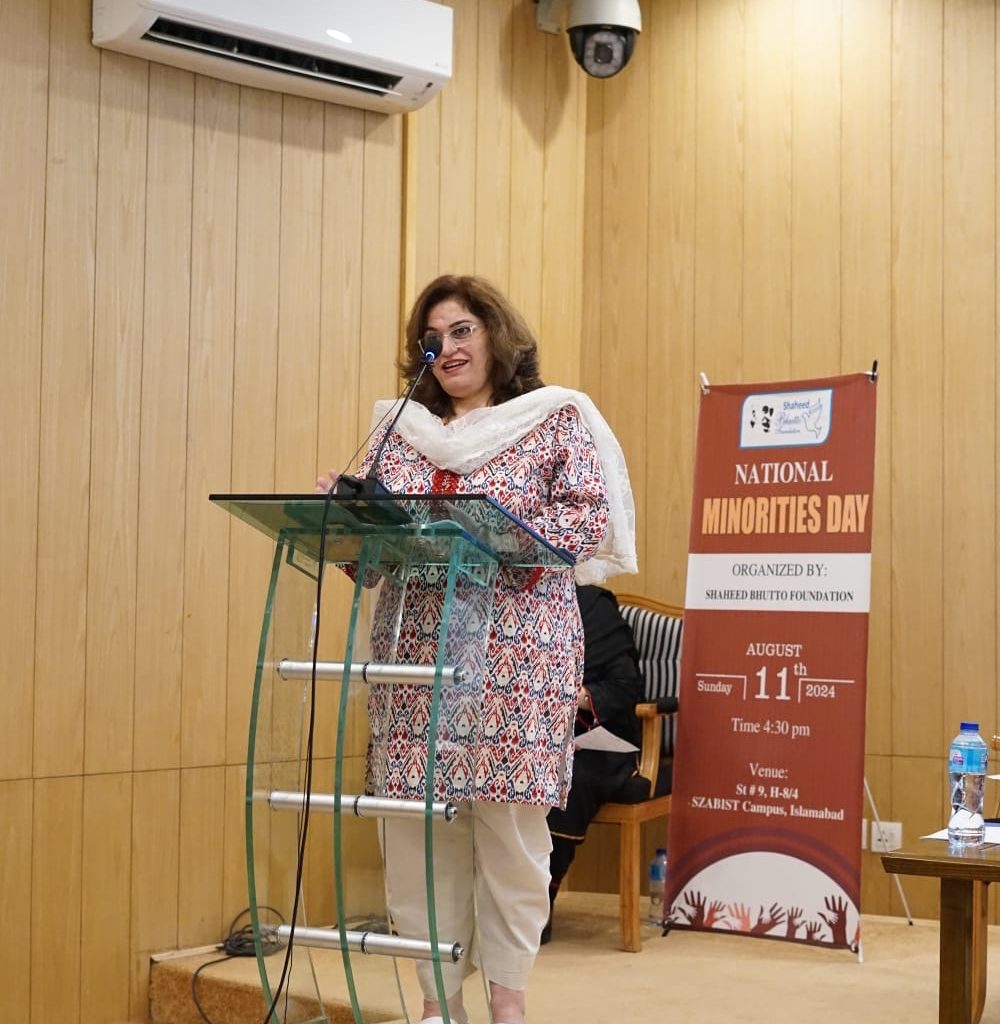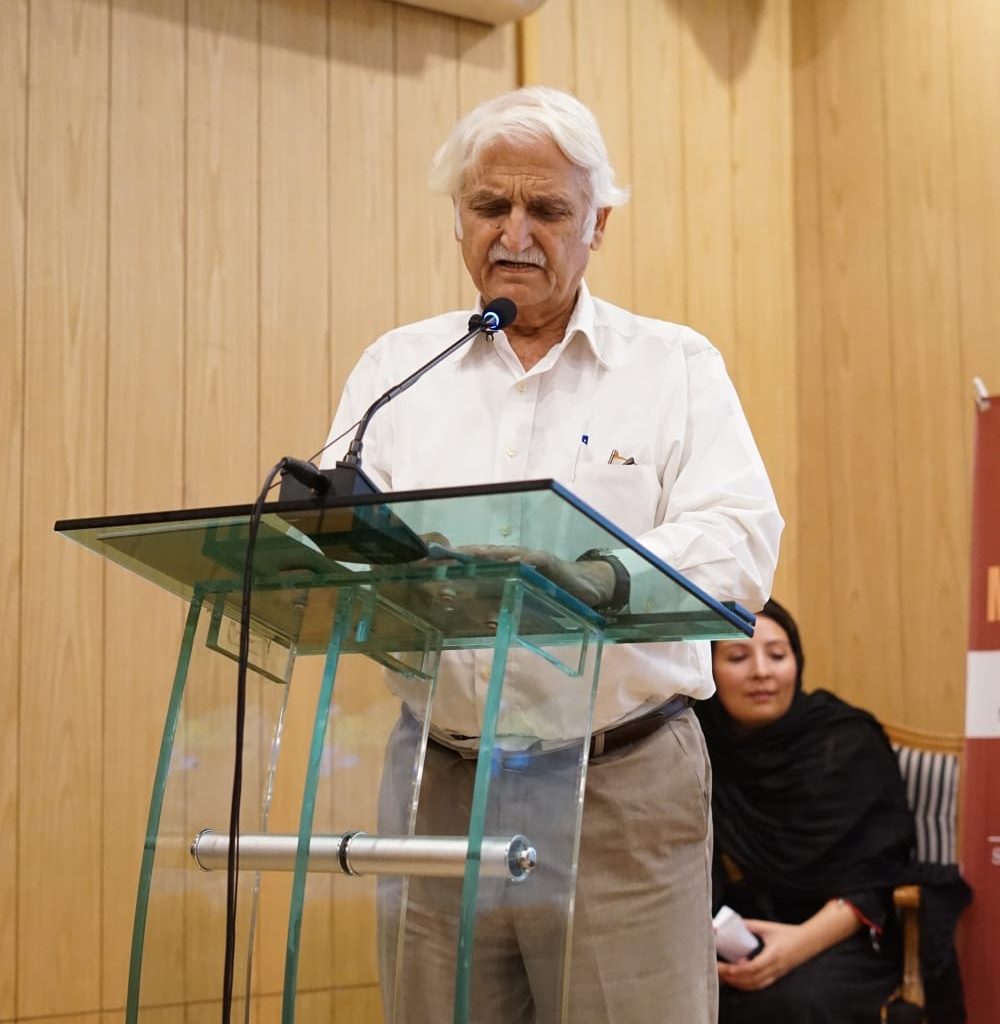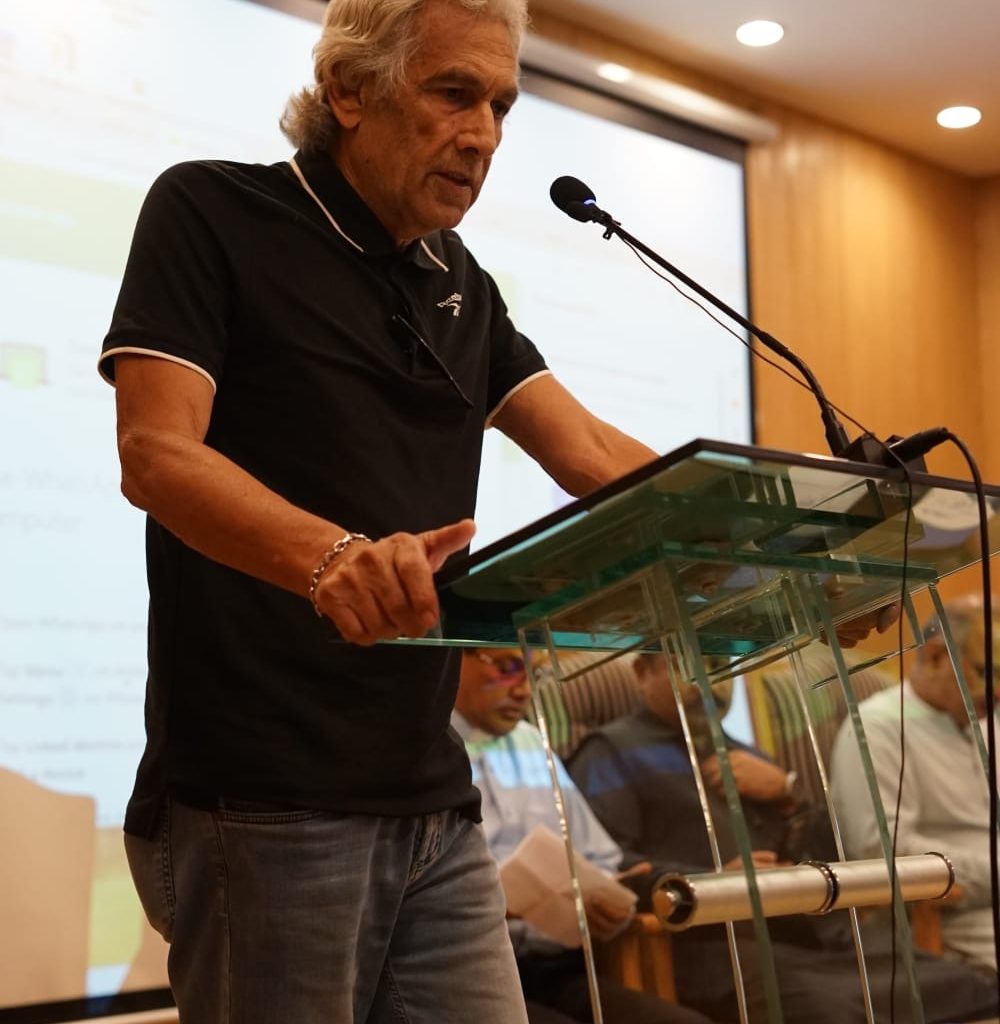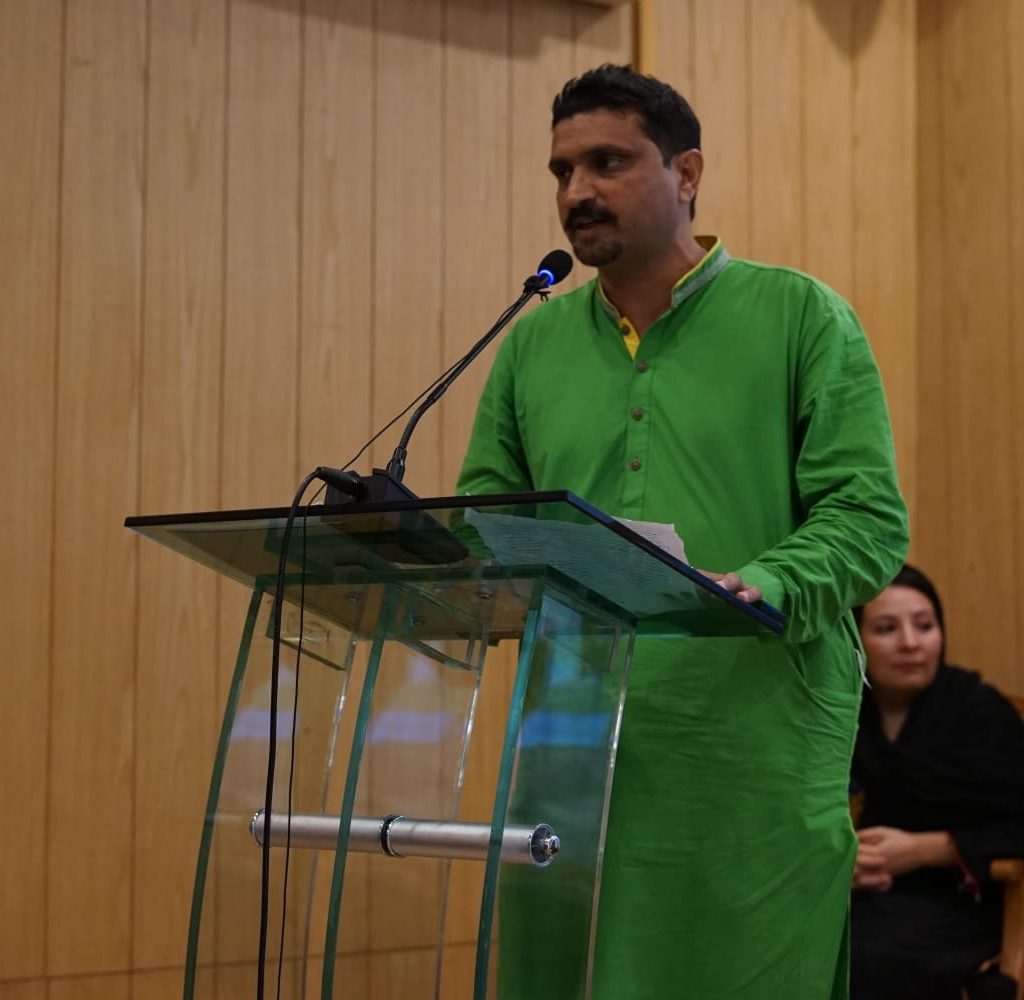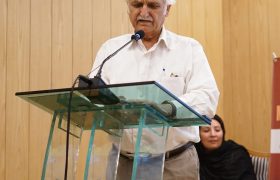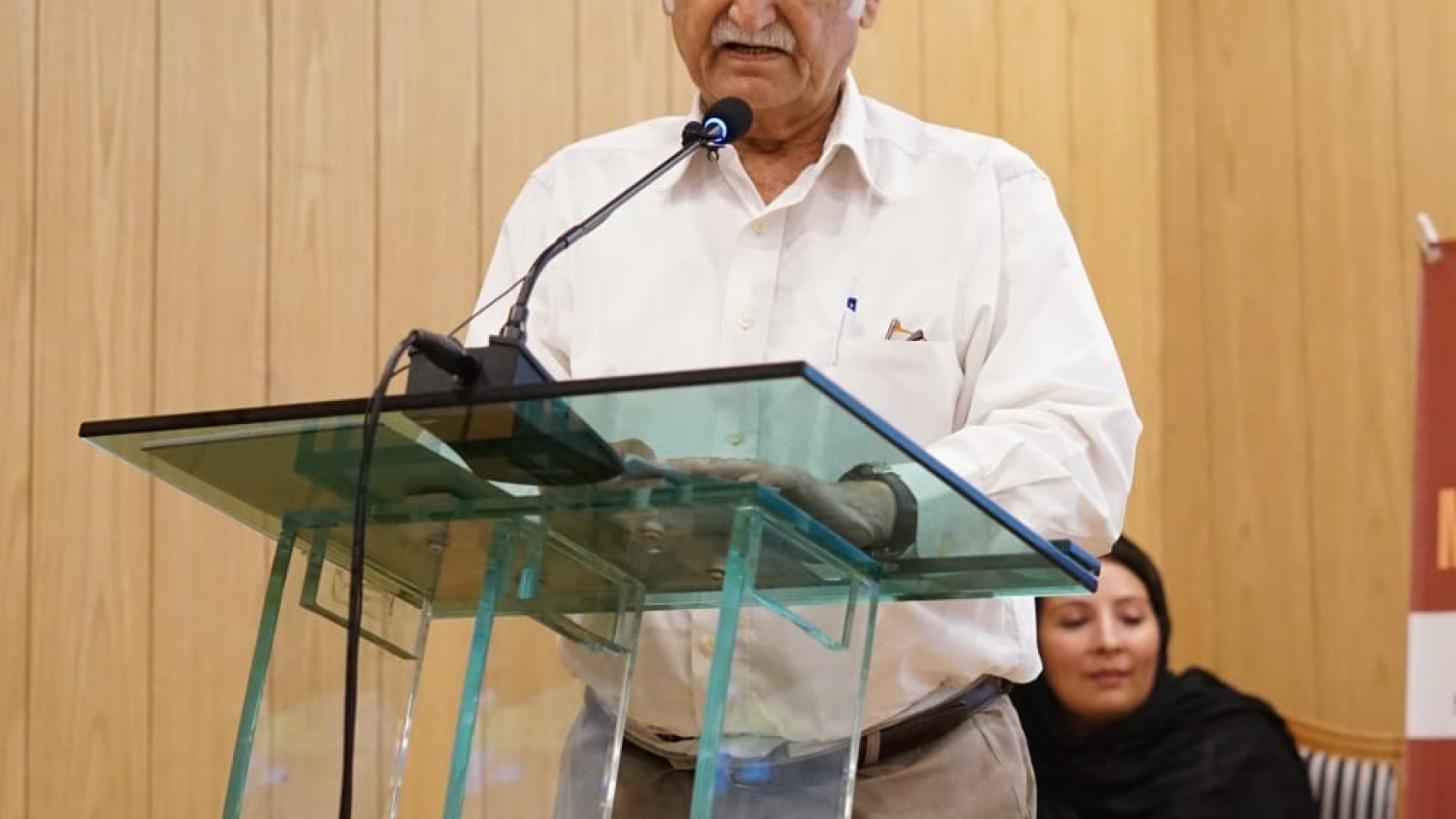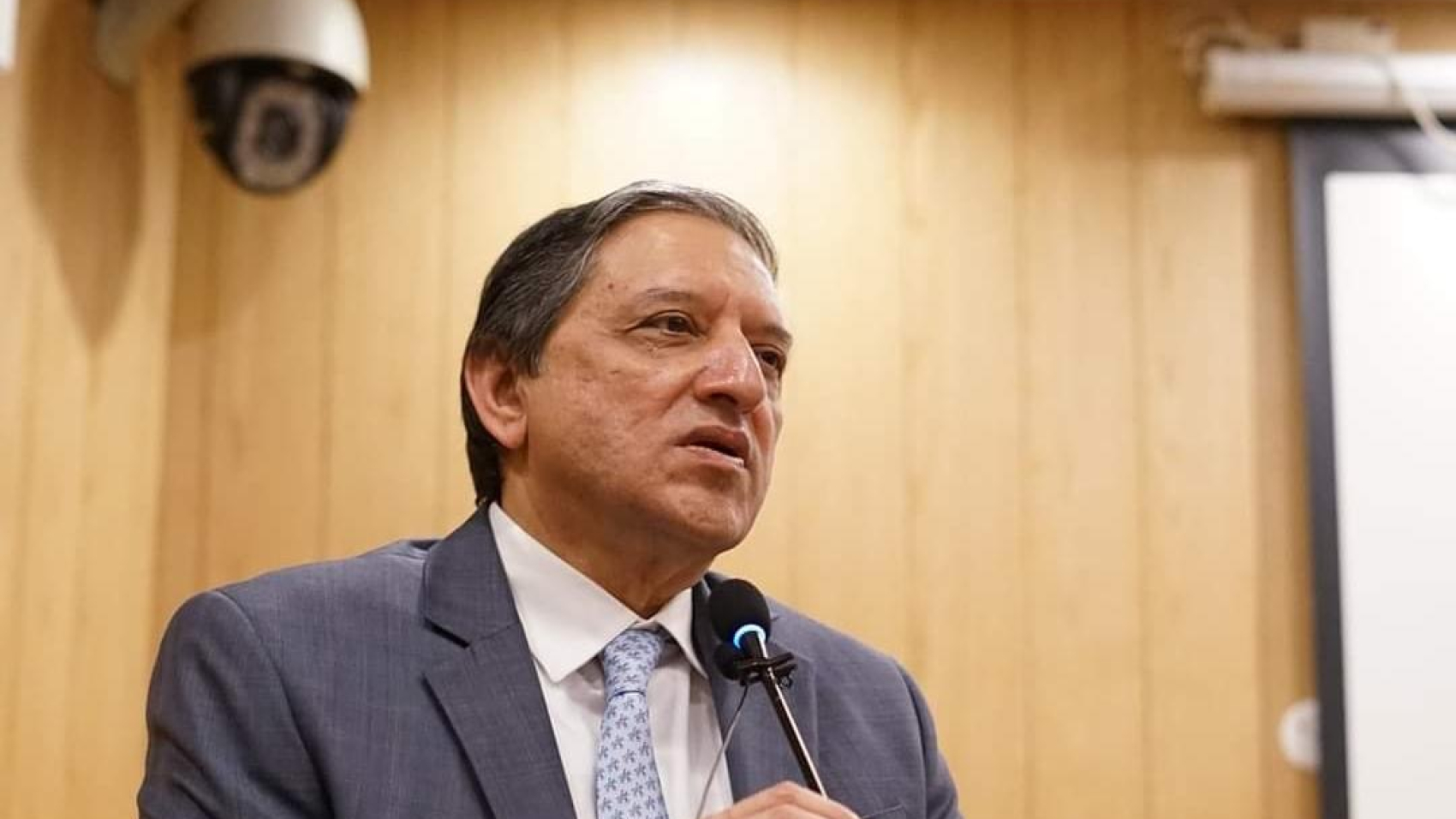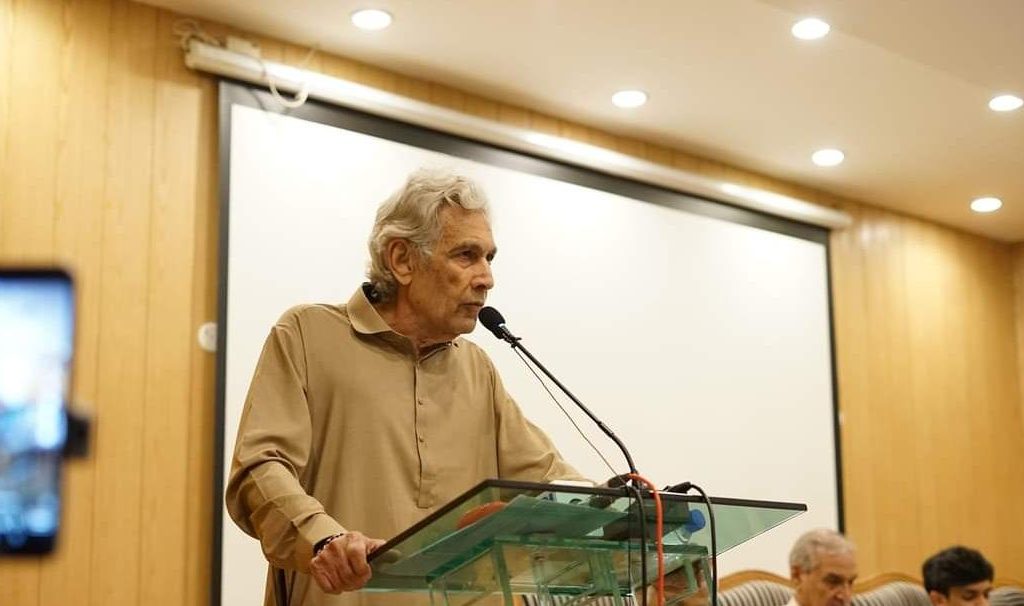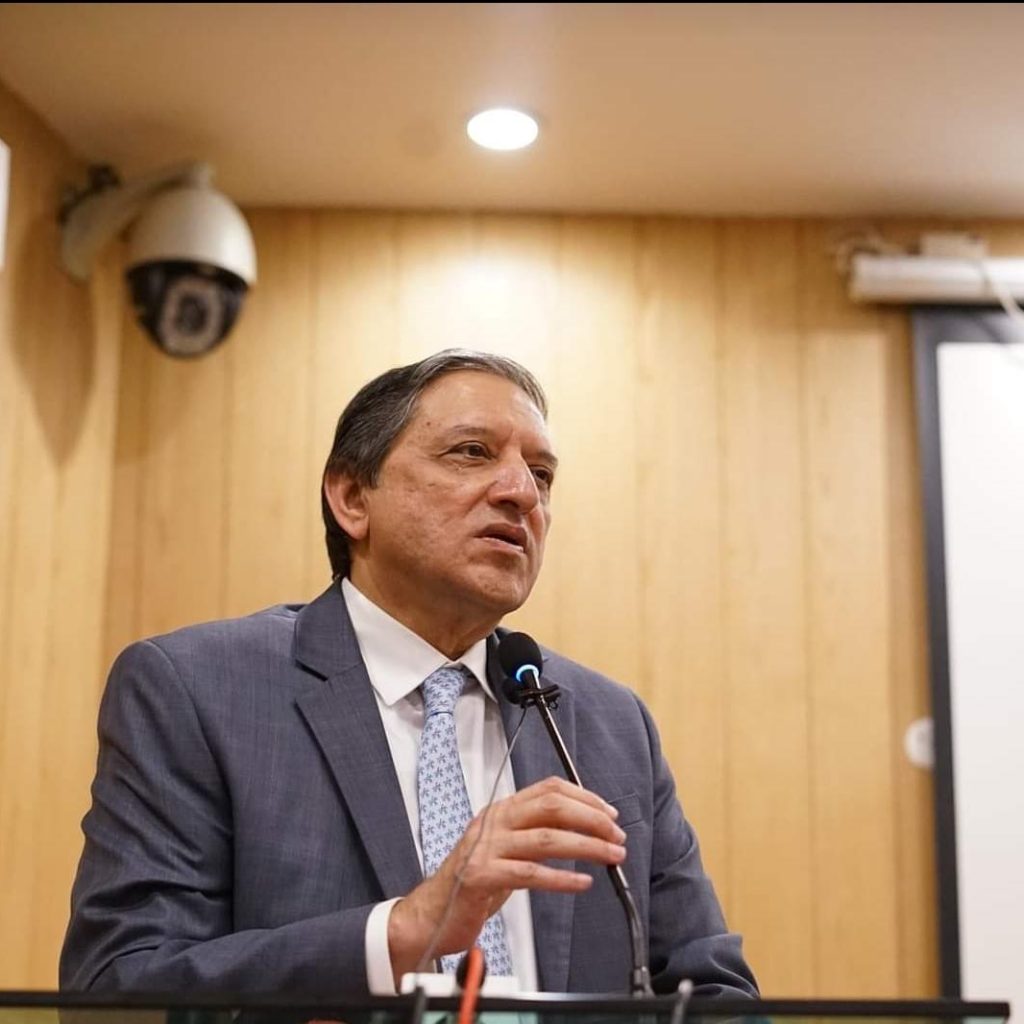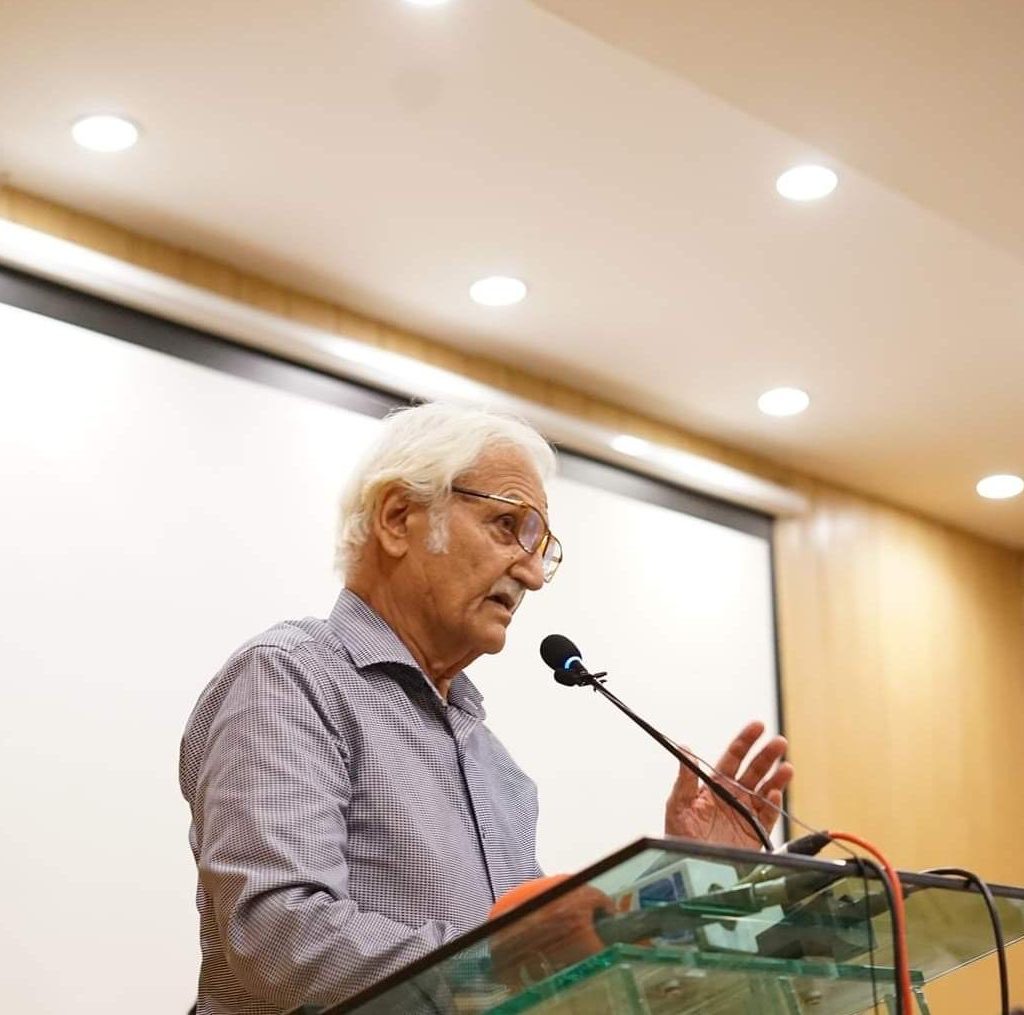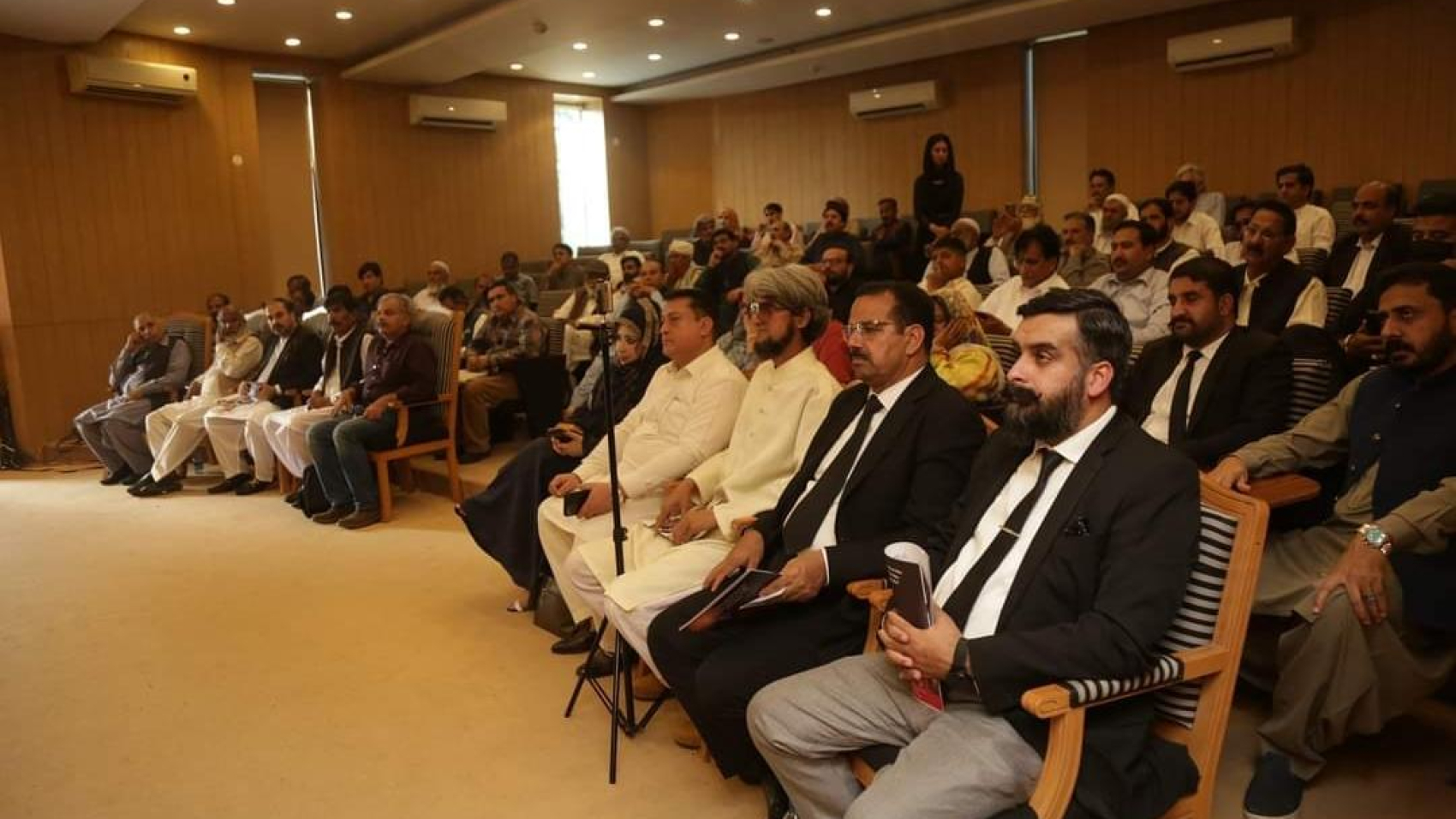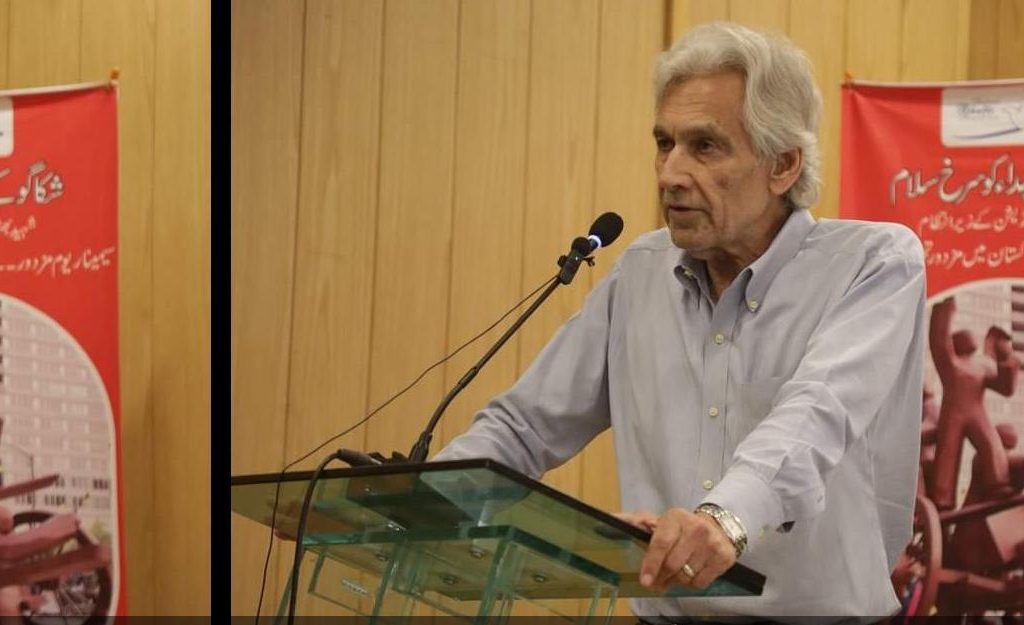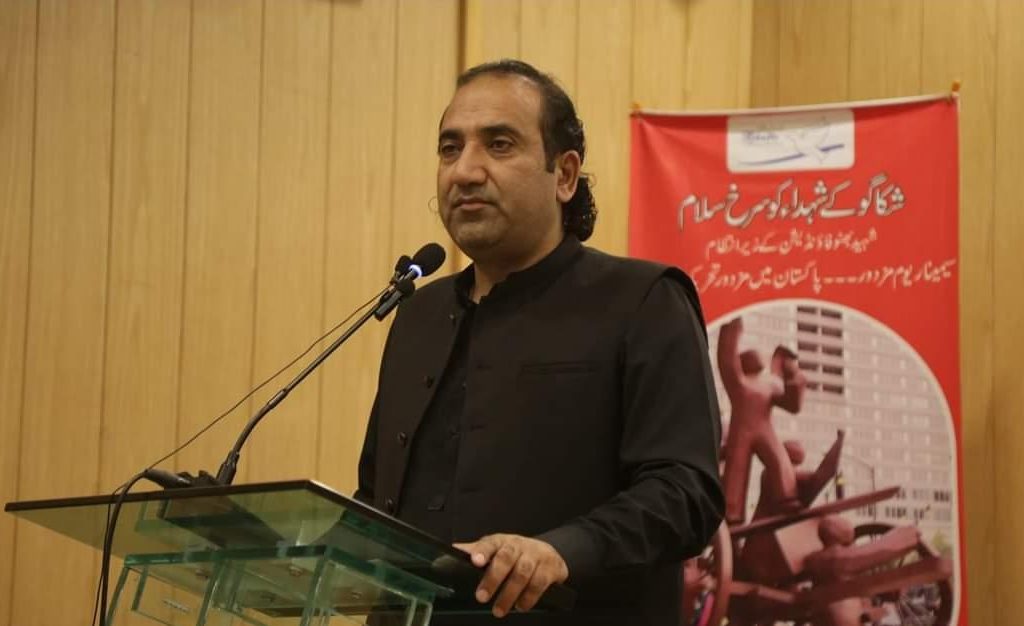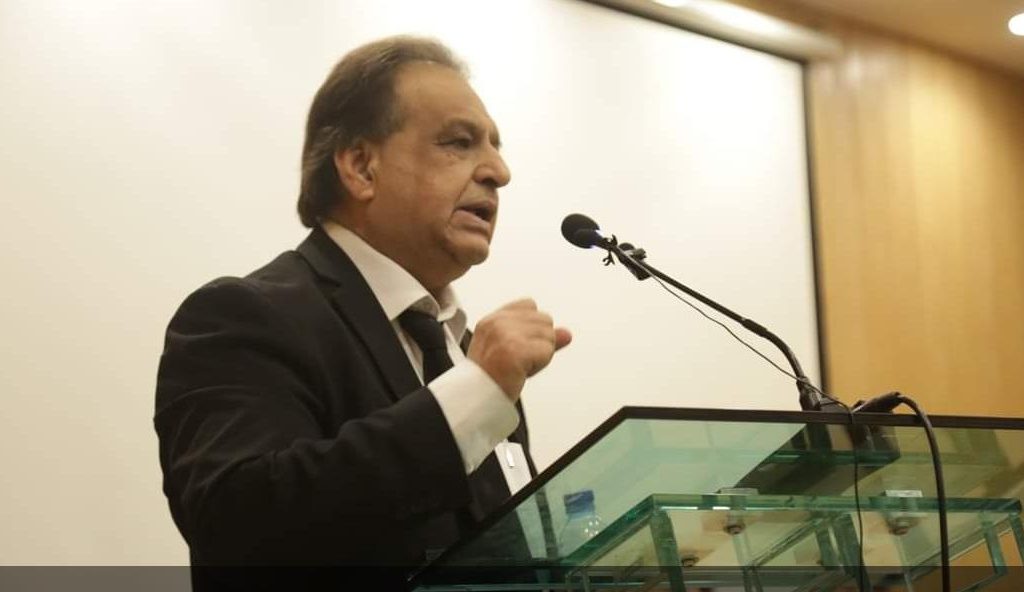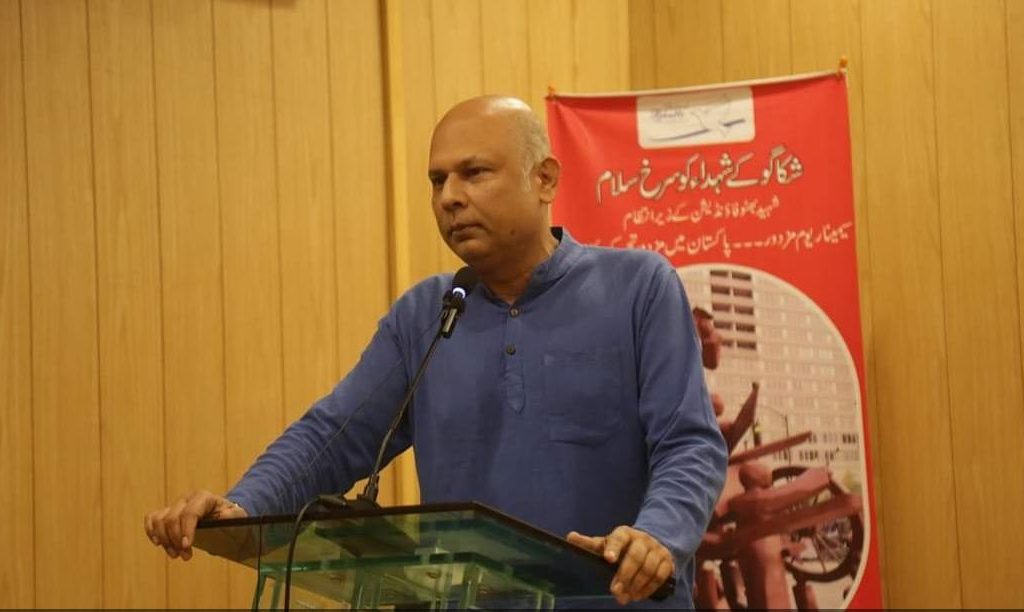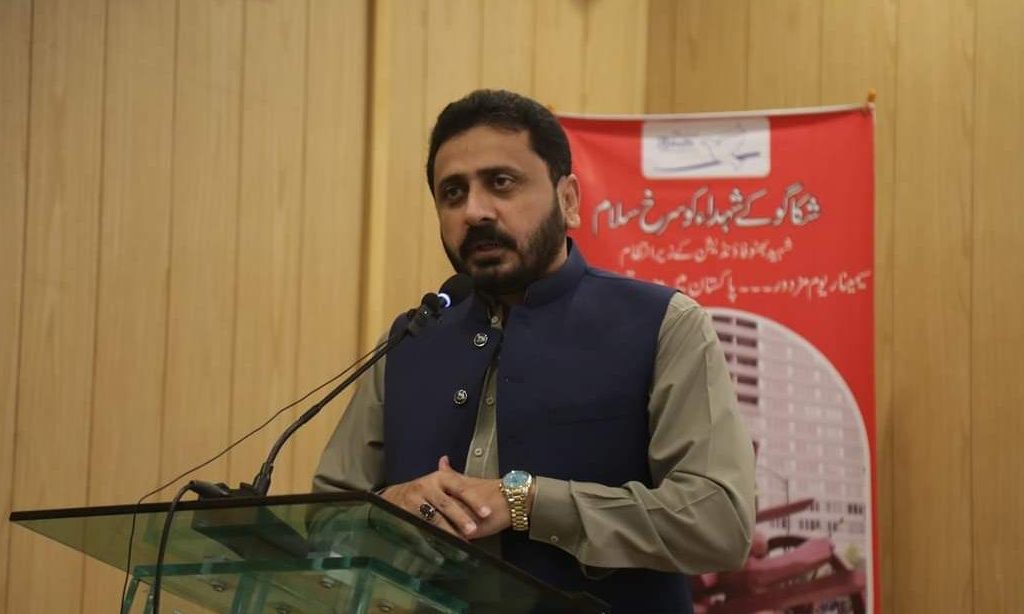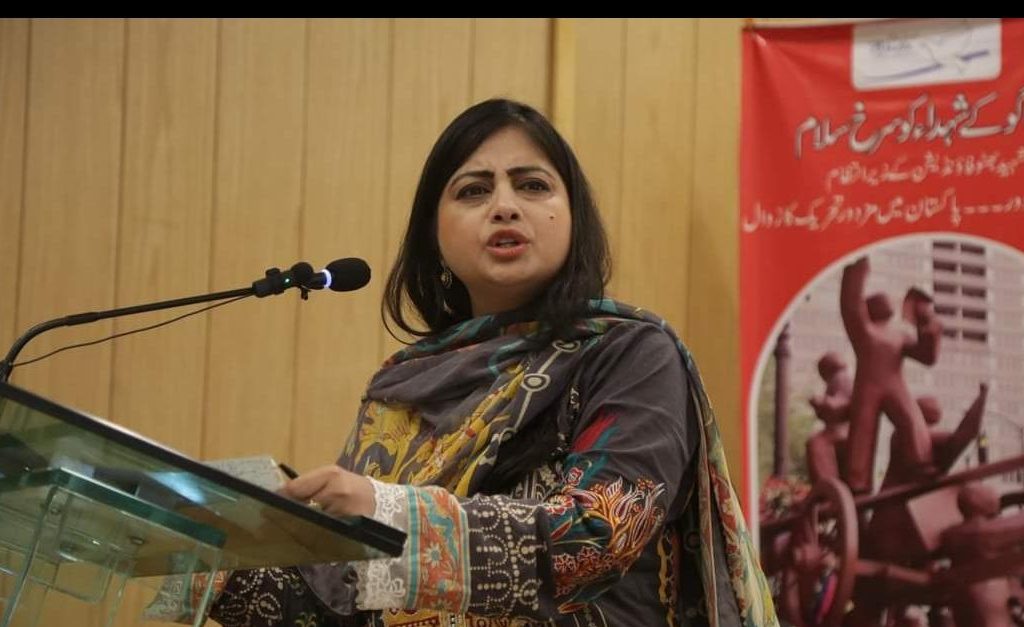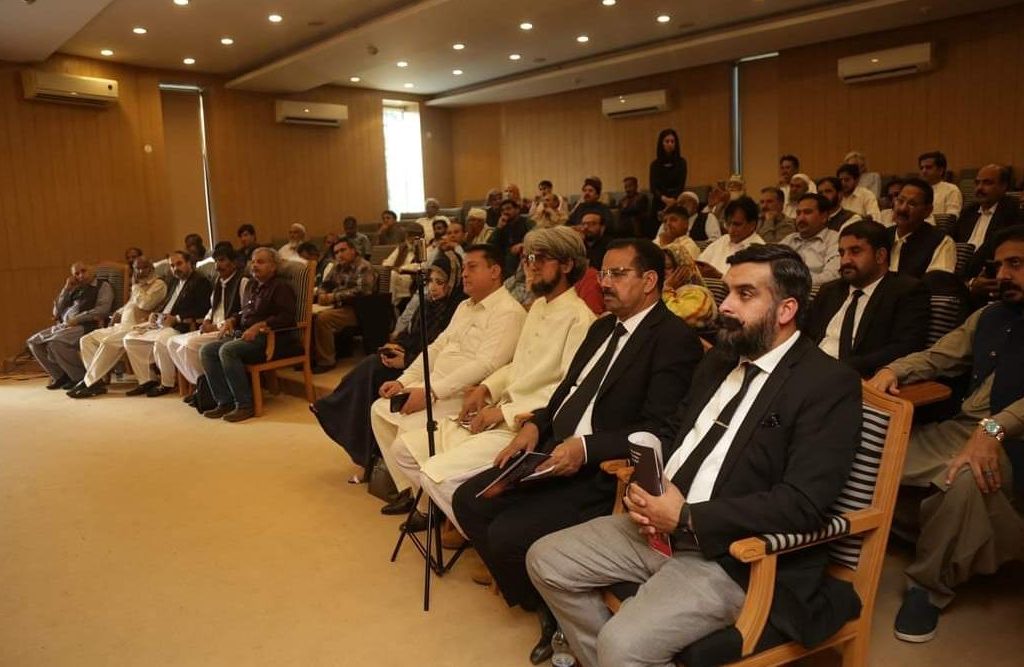Mr. Asif Khan expressed his commitment to celebrating Minorities Day annually, emphasizing that it is a tradition that the organization has never missed. He reflected on the establishment of the Bhutto Foundation in 2205, highlighting that its core mission was to strengthen democracy and promote discussions on human rights. He mentioned that when they first launched the seminar, there was significant discouragement from various quarters. Many people argued that it was no longer the right time to hold such events, given that the world had shifted towards social media and digital platforms. Despite these challenges, the Foundation remained steadfast in its mission, continuing its efforts even during the difficult days of the COVID-19 pandemic.
Mr. Asif Khan reiterated a point he had made the previous day, stating that the entire struggle was fundamentally for the rights of minorities. He recalled the historical context where Muslims, who were a minority in India, feared being marginalized under the dominant Hindu majority. This fear drove them to fight for their rights and ultimately led to the creation of Pakistan.
He further elaborated on Quaid-e-Azam Muhammad Ali Jinnah’s historic speech, which he described as a pivotal moment in the history of Pakistan. In that speech, Quaid-e-Azam made a profound declaration, stating that from that day onward, the identity of Pakistanis would not be defined by their religion. He asserted that Pakistanis were neither Muslims, Christians, nor Hindus; rather, they were united as Pakistanis and were free. This speech, according to Mr. Asif Khan, was not without controversy. It faced criticism and was even subjected to a blackout. He noted that at the time of Pakistan’s independence, minorities constituted around 21 or 22 percent of the population. However, over the years, this percentage has significantly decreased to around 4 or 5 percent. Mr. Asif Khan attributed this decline to the departure of many people who felt that Pakistan had strayed from the founding principles on which it was established.
In a heartfelt statement, Mr. Asif Khan expressed his strong support for the Christian community. He recounted the tragic events in Gojra, where the homes of Christians were set ablaze, resulting in entire settlements being destroyed. He shared that he was present there during those difficult times, witnessing the devastation firsthand. He also mentioned a more recent incident in Sargodha, where once again, the Christian community faced challenges. He pointed out that while the representatives of others arrived later, he was the first to reach the affected area. He personally reached out to the community’s leaders, inviting their father and assuring him that no harm would come to them.
Mr. Asif Khan’s words reflect a deep commitment to the principles of equality, justice, and the protection of minority rights, which he believes are the cornerstone of a truly democratic society. He remains resolute in his belief that the ideals of Pakistan’s founding must be upheld, and that every citizen, regardless of their religion or background, should feel safe, respected, and valued in the country.
Ms. Shagoofa shared that this is her second year participating in Minorities Day, an occasion that holds significant meaning for her as she represents her community, the Bahá’í community. She expressed her pride in being part of this event, feeling that it allows her to contribute to a broader message of inclusivity and unity. Representing her community on this day is not just a personal commitment but a profound expression of solidarity with all minority groups.
She elaborated on her role in the Minorities Day celebrations, highlighting that she sees herself as a part of a vibrant bouquet of diverse communities. Each flower in this bouquet represents a different minority group, coming together to create a beautiful and unified whole. This symbolism reflects the essence of what Minorities Day stands for: celebrating and embracing diversity while fostering a sense of togetherness.
Ms. Shagoofa emphasized that the purpose of celebrating Minorities Day is to promote unity in diversity. This day serves as a powerful reminder that despite our different backgrounds, beliefs, and cultures, we are all part of a larger human family. She conveyed a message from the Bahá’ícommunity, asserting that the entire world can be viewed as one country, with all its inhabitants being citizens of this global nation. This perspective underscores the idea that our shared humanity transcends national, cultural, and religious boundaries.
She reflected on the deeper significance of this message, which highlights the potential for harmony among different religions. Ms. Shagoofa pointed out that all major religions are like rays of the same sun, each offering a unique perspective but ultimately conveying a similar fundamental message. This message is one of love, compassion, and mutual respect. By embracing this shared message, we can bridge gaps between various faiths and foster a spirit of understanding and cooperation.
In her speech, Ms. Shagoofa reiterated that the teachings of all major religions promote values of love and compassion. These core principles are universal and serve as a foundation for building a more inclusive and empathetic world. By recognizing and celebrating the commonalities among different religions, we can strengthen our collective resolve to live in harmony and support one another.
Overall, Ms. Shagoofa’s words reflect a deep commitment to promoting unity and understanding among diverse communities. Her participation in Minorities Day is not only a representation of her own faith but also a testament to her belief in the power of diversity to enrich and strengthen our global community.
Father Simon emphasized the crucial role Christians played in the creation of Pakistan, stating that their contributions were pivotal in the country’s formation. He expressed his deep connection to SZABIST, mentioning that he has visited the institution numerous times. His admiration for the Pakistan People’s Party (PPP) is rooted in its stance as a moderate political party, which, according to him, is the only party that recognized the significance of August 11 as a critical day in the nation’s history.
He reflected on Quaid-e-Azam Muhammad Ali Jinnah’s speech to the Constituent Assembly, where Jinnah articulated his vision for Pakistan as an inclusive and impartial state. Father Simon highlighted that Jinnah’s idea of the state was based on the principles of equality for all citizens, the rule of law, and a government that would serve all people without discrimination. He urged listeners to revisit the full speech, which was published in Dawn, where these key points were clearly laid out. According to Father Simon, Jinnah had a clear vision of what kind of state Pakistan would be in the future—one that was inclusive and fair to all its citizens, regardless of their religion or background.
However, Father Simon expressed disappointment that the original vision for Pakistan has not been fully realized. Over time, the structure of the state has changed significantly, deviating from the inclusive principles that were intended. He remarked that Pakistan today is neither a theocratic state nor a truly secular one, but rather it is caught between these two extremes, unable to fully commit to either path. He lamented that even after 76 years since the country’s founding, there remains a lack of clarity and direction on what kind of strategy the nation should adopt moving forward.
Father Simon also brought attention to a significant legal judgment passed in June 2014 by Tassaduq Hussain Gillani, which focused on the protection of religious minorities in Pakistan. The judgment outlined several key recommendations, including the establishment of a federal government task force to prepare a comprehensive strategy for promoting religious tolerance across the country. It also called for the development of a curriculum that would teach religious and social tolerance in schools, and the formation of a special police force dedicated to protecting places of worship for minorities.
Despite the importance of these recommendations, Father Simon noted with regret that not a single one has been implemented, even though ten years have passed since the judgment was issued. He expressed his concern over the lack of progress, highlighting that this inaction has left religious minorities in Pakistan vulnerable and without the protections they were promised. Father Simon’s reflections underscored a deep-seated frustration with the current state of affairs, as well as a yearning for the country to return to the inclusive and tolerant vision that was originally set forth by its founding leaders.
Mr. Farhatullah Babar expressed his deep appreciation for the significant contributions made by the Christian community in Pakistan, emphasizing that their most profound impact has been in the field of education, rather than in politics. He highlighted that the educational advancements facilitated by Christians have played a crucial role in shaping the intellectual and moral fabric of the nation. Babar specifically pointed to renowned institutions such as Edwardes College in Peshawar and Forman Christian College (FC College), noting that both of these prestigious establishments were founded by Christian missionaries. He praised the missionaries for their dedication to education and their commitment to nurturing generations of students with knowledge, wisdom, and ethical values.
Drawing on his personal experience, Babar mentioned that he is an alumnus of Edwardes College, which he regards with great respect and fondness. He acknowledged that the education he received there profoundly influenced his own life and career. This connection deepened his appreciation for the Christian community’s contributions to education in Pakistan. He emphasized that, in his view, these contributions surpass all others, as they have laid the foundation for countless individuals to pursue knowledge and contribute positively to society.
Babar also addressed the remarks made by Mr. Wankvani, expressing his sincere hope that the important issues he raised would be acted upon. He pointed out that one of the fundamental challenges facing Pakistani society today is the pervasive religious intolerance that has taken root. This intolerance, according to Babar, is largely due to a lack of understanding and acceptance of others’ beliefs. He observed that many people in society hold the misguided belief that only they possess the absolute truth, leading to a rigid and narrow-minded approach to religion and spirituality.
He argued that the key to overcoming this intolerance lies in recognizing that no single individual or group has a monopoly on truth. Babar urged people to understand that all religions are divine in origin and that each one contains elements of truth within it. He called for a more inclusive and open-minded approach to religious understanding, one that acknowledges the shared values and principles that exist across different faiths. By fostering a culture of tolerance, respect, and mutual understanding, Babar believes that society can move beyond the divisions that currently plague it and work towards a more harmonious and peaceful future.
In conclusion, Mr. Farhatullah Babar’s remarks underscored the vital role that education, particularly the contributions of the Christian community, plays in fostering a more enlightened and tolerant society. He emphasized the need for continued dialogue and action to address the issues of religious intolerance and to promote a more inclusive and compassionate society where all individuals, regardless of their faith, can coexist in harmony.
Mr. Naveed Jeewa, who is well-known as a dedicated minorities’ rights activist, shared his deep concern and perspective on the issues facing religious minorities in Pakistan. Drawing from his experiences and understanding of history, he emphasized the importance of remembering and upholding the principles laid out by Quaid-e-AzamMuhammad Ali Jinnah. Jeewa noted that Quaid-e-Azam, the founding father of Pakistan, addressed the rights and importance of minorities on several occasions, making it clear that Pakistan was envisioned as a state where all citizens, regardless of their religious background, would have equal rights and opportunities.
He particularly stressed the significance of Quaid-e-Azam’saddress to the Constituent Assembly on August 11, 1947, a speech that is often referred to as one of Jinnah’s most important statements on the vision for Pakistan. In this address, Quaid-e-Azam spoke explicitly about the role of minorities in the new nation, assuring them that they would be free to practice their religion and have their rights protected in Pakistan. This speech, according to Jeewa, should be seen as a foundational moment in the history of Pakistan, where Jinnah laid out his inclusive vision for the country.
Jeewa expressed his disappointment that despite the significance of this speech, it was largely neglected after the creation of Pakistan. For many decades, he pointed out, the speech was not even mentioned in official discourse or public discussions, effectively sidelining Quaid-e-Azam’s vision of an inclusive and tolerant Pakistan. He emphasized that this neglect has had far-reaching consequences for the country’s minorities, who continue to struggle for recognition and protection of their rights.
Furthermore, Mr. Jeewa highlighted the sacrifices made by religious minorities during the Pakistan Movement. He stated that these communities, inspired by Quaid-e-Azam’sleadership, played an active role in the struggle for Pakistan, contributing not only their efforts but also their blood to the cause. The minorities were hopeful that the new nation would honor Quaid-e-Azam’s promises and treat them with fairness and justice. However, Jeewa lamented that the reality has been different, with minorities often feeling marginalized and their contributions overlooked.
Mr. Naveed Jeewa’s remarks underscore the ongoing struggle for minority rights in Pakistan and the need to revisit and reaffirm the principles that Quaid-e-Azam articulated in his vision for the country. He urged that the legacy of Quaid-e-Azam’s August 11 speech be revived and honored, not just as a historical document, but as a guiding principle for building a more inclusive and just society in Pakistan. By doing so, the nation can move closer to realizing the true spirit of Jinnah’s vision, where every citizen, regardless of their faith, is treated with dignity and respect.
Mr. Ramesh, a prominent advocate for minority rights, shared his experiences and reflections on the significant role he played in representing his community in the Supreme Court. He proudly recounted how he stood before the highest court in the land, arguing on behalf of all minority communities in Pakistan. His arguments, rooted in a deep understanding of both the legal framework and historical precedents, led to a landmark judgment that has since been recognized as a pivotal moment in the ongoing struggle for minority rights in the country.
Mr. Ramesh highlighted that this judgment was heavily influenced by his arguments, which drew upon legal principles dating back to 1942. He views this judgment as a crucial step toward resolving the myriad issues faced by minorities in Pakistan, provided that it is implemented effectively. He believes that the proper implementation of this judgment could address many of the challenges that minorities continue to face, including discrimination, marginalization, and a lack of representation.
In the aftermath of the judgment, Mr. Ramesh took proactive steps to ensure its implementation. He spearheaded efforts to establish a commission dedicated to overseeing the execution of the judgment’s directives. Recognizing the importance of leadership in such an initiative, he was offered the position of chairperson of this commission. However, due to his numerous responsibilities and busy schedule, he respectfully declined the role, recommending Shoaib Suddle, a respected figure known for his integrity and commitment, to lead the commission instead. Despite this appointment, Mr. Ramesh expressed his frustration that, to this day, the judgment has not been implemented anywhere in Pakistan—not in a single province or region.
One of the key points Mr. Ramesh raised in his arguments before the Supreme Court was the need for educational reform, specifically in the curriculum. He passionately argued that as long as the sacrifices and contributions of minority heroes remain absent from the textbooks and history lessons taught to future generations, minorities will continue to feel alienated and disconnected from the broader national identity. He emphasized that it is crucial for the youth of Pakistan to learn about the diverse contributions made by people from all communities, as this understanding fosters a sense of belonging and unity within the nation.
Mr. Ramesh also reflected on a significant event from August 11, 2009, when President Asif Ali Zardari took steps to address the concerns of minorities. While he acknowledged these efforts, he pointed out that much more needs to be done. Mr. Ramesh firmly believes that the constitution of Pakistan provides for the rights of non-Muslim citizens, rather than simply categorizing them as “minorities.” This distinction, he argued, is important because it emphasizes the equal status of all citizens under the law, regardless of their religious beliefs. He has consistently raised this point in his discussions and arguments before the Supreme Court, advocating for a more inclusive and equitable interpretation of the constitution.
Mr. Ramesh’s remarks underscore the ongoing challenges faced by minority communities in Pakistan and the urgent need for meaningful action to address these issues. He called for a renewed commitment to the implementation of the landmark judgment, stressing that only through such efforts can Pakistan truly honor the principles of equality and justice that were envisioned by its founders. His words serve as a powerful reminder that the struggle for minority rights is far from over and that continued vigilance and advocacy are necessary to ensure that all citizens are treated with the dignity and respect they deserve.
